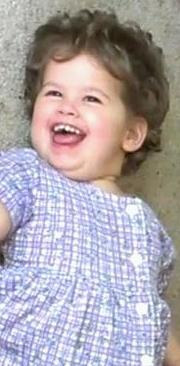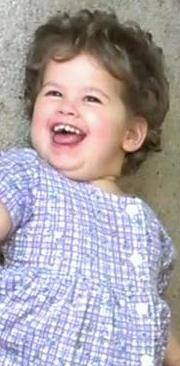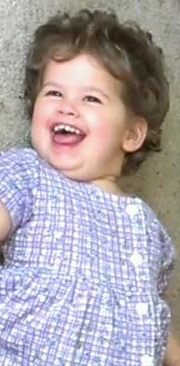Today I want to share about my daughter Arcadia. As I mentioned in the last post, one of my daughters is disabled. She was born normally, and developed normally until she was involved in a serious car accident at 7-months-old. Dealing with her injury for the last 3 years, and with her predicted life-long disability has been one of the biggest learning experiences of my life. The fundamental lesson seems to be acceptance.
Many people who hear our story say things like, “Oh my gosh that must be so hard!” “I could NEVER do that!” or “How do you possibly deal with that?” These comments always surprise me when I hear them, because Arcadia’s disability isn’t something that I think a lot about. Sure, our lives are different than most people’s, but why does that have to cause unbearable grief and heartache? We have found routines and patterns that work for us, and we are both very happy people. We choose to be.
Arcadia has always been a happy child from the day she was born, and the accident only seemed to change that temporarily. She may not be able to walk, talk, read, or play much with other kids yet, but I know that she is one of the happiest people I have ever known. Isn’t that what all of us really want, deep down? So much of the human struggle seems to be about to finding and maintaining happiness. And Arcadia has already figured this out, so why would I grieve for her?
My opinion on this matter seems to surprise a lot of people. It seems like there is some kind of underlying belief that to accept something like this means that I am glad that it happened and I don’t want her to get better. Of course the truth is the exact opposite of that. Of course I wish my sweet little almost-4-year-old was happily bounding around and constantly asking me “why?” But she isn’t. And the only thing that being down about that does for me is keep us both down and out. Instead, I look at her as she is, we take all the steps we can to find her help and healing, and we look positively toward the future.
There is no rule that says everyone has to be able to do all the same things at the same skill level and in the same developmental time-frame. Arcadia would have a different life if she could do the same things as her peers, but would that necessarily make it better? My life also more complicated because I have to take care of so many of her basic needs, and I probably always will. But does that mean it makes my life worse? I don’t think so. Arcadia’s smile, giggles, and pure happiness are something that I am blessed with every day. Sure, other mommies get their own smiles and delight from their littles, but I’m the only one who gets to be little Arcadia’s mommy. And I treasure that.
At times I have also sometimes struggled with the loss that our family experienced. But when I do, I have found that when things feel really hard to deal with, it is because I am not accepting how things really are. It is always something inside of me that is pushing against reality and trying to control, force, or change the situation around me. We all hear a lot about, “going with the flow”, or “letting go,” but these can be difficult concepts to really take to heart in intense situations.
The following quote, by Dr. Janis Abrahms Spring, author and clinical psychologist, helps express why acceptance frees us from suffering and despair. The quote is written about betrayal or mistreatment, but in my experience the same concepts apply to many hardships. I know that betrayal is one of the strong feelings I experience when I do feel grief for my family. I feel betrayed and mistreated by life, circumstances, or even by a higher power. It feels seethingly unfair, and I struggle to try to understand why this has happened to me and my daughter. Until I find my way back to acceptance, it is a constant battle with these feelings. I will let the quote say the rest,
“Whether you choose to live in acceptance, or fear in relation to a past betrayal or mistreatment, your response accordingly shapes both the present and future. It’s a choice between allowing automatic defense strategies to decide the course of your life, or consciously accessing the strength of both your courage and your compassion by choosing acceptance. Your choices are powerful emotional energies, fueled by your beliefs, wants, yearnings, thoughts and actions, etc., that powerfully determine the direction your life takes.” Dr. Janis Abrahms Spring.
The Epoch Times publishes in 35 countries and in 19 languages. Subscribe to our e-newsletter.






